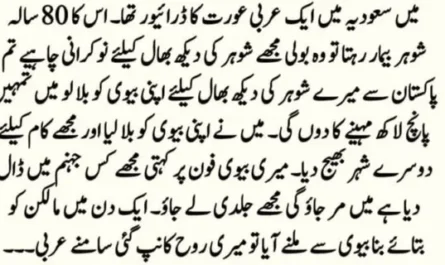Hair loss can be a distressing experience, especially when you notice clumps of hair falling out during combing and bathing. Understanding the reasons behind hair loss and exploring effective treatments can help you manage this common issue. In this article, we’ll delve into the causes of hair loss during combing and bathing and discuss various treatment options to help you maintain healthy hair.
Common Causes of Hair Loss During Combing and Bathing
Normal Hair Shedding
Hair Growth Cycle
Hair growth occurs in cycles, consisting of the anagen (growth), catagen (transitional), and telogen (resting) phases. It’s normal to lose some hair during the telogen phase, as new hairs push out the old ones.
Average Hair Loss Per Day
On average, people lose about 50 to 100 hairs per day. This shedding is part of the natural hair growth cycle and is usually nothing to worry about unless it becomes excessive.
Hair Care Practices



Use of Harsh Products
Using harsh hair care products, such as shampoos with sulfates or alcohol-based styling products, can weaken hair strands and lead to increased breakage and shedding.
Excessive Heat Styling
Frequent use of heat styling tools like blow dryers, curling irons, and straighteners can damage hair, making it more prone to breakage and fall.
Medical Conditions
Androgenetic Alopecia
Androgenetic alopecia, commonly known as male or female pattern baldness, is a genetic condition that causes hair thinning and loss, particularly around the crown and temples.
Telogen Effluvium
Telogen effluvium is a condition where a significant number of hair follicles enter the telogen (resting) phase prematurely, leading to diffuse hair shedding. This can be triggered by stress, illness, or hormonal changes.
Scalp Infections
Scalp infections, such as ringworm, can cause hair loss. These infections often result in inflamed, itchy, and scaly patches on the scalp.
Nutritional Deficiencies
Iron Deficiency
Iron deficiency anemia can cause hair loss because iron is essential for producing hemoglobin, which carries oxygen to hair follicles.
Vitamin Deficiencies
Deficiencies in vitamins like vitamin D, B vitamins, and zinc can lead to hair thinning and loss. A balanced diet is crucial for maintaining healthy hair.
Stress and Hormonal Changes
Impact of Stress on Hair
Chronic stress can disrupt the hair growth cycle, pushing more hairs into the telogen phase and leading to increased shedding.
Hormonal Imbalances
Hormonal imbalances, such as those caused by thyroid disorders, polycystic ovary syndrome (PCOS), or menopause, can lead to hair loss.
Effective Hair Loss Treatments
Over-the-Counter Solutions
Minoxidil
Minoxidil is a topical treatment that stimulates hair growth and slows hair loss. It’s available over-the-counter and is effective for many people with androgenetic alopecia.
Biotin Supplements
Biotin, a B vitamin, is often recommended for hair health. While scientific evidence is mixed, some people find that biotin supplements improve hair strength and growth.
Prescription Treatments
Finasteride
Finasteride is an oral medication that reduces levels of dihydrotestosterone (DHT), a hormone linked to hair loss. It’s commonly prescribed for men with androgenetic alopecia.
Corticosteroids
Corticosteroids can be injected into the scalp to reduce inflammation and stimulate hair growth in cases of alopecia areata or other inflammatory scalp conditions.
Natural Remedies
Essential Oils
Essential oils like rosemary, peppermint, and lavender have been shown to promote hair growth and reduce hair loss when used in scalp massages or added to shampoos.
Scalp Massages
Regular scalp massages can increase blood flow to the hair follicles, promoting hair growth and improving overall scalp health.
Lifestyle Changes
Balanced Diet
Eating a diet rich in vitamins, minerals, and proteins can support hair health. Include foods like leafy greens, nuts, seeds, and lean proteins in your diet.
Reducing Stress
Managing stress through practices like meditation, yoga, and exercise can help prevent hair loss associated with chronic stress.
Preventive Measures for Hair Loss
Proper Hair Care Routine
Gentle Combing Techniques
Use a wide-toothed comb to detangle hair gently, starting from the ends and working your way up to prevent breakage.
Choosing the Right Shampoo and Conditioner
Select shampoos and conditioners formulated for your hair type and free of harsh chemicals. Look for products with natural ingredients and moisturizing properties.
Avoiding Hair Damage
Limiting Heat Styling
Minimize the use of heat styling tools, and always use a heat protectant spray when you do. Let your hair air dry whenever possible.
Protecting Hair from Environmental Damage
Protect your hair from sun exposure, pollution, and harsh weather conditions by wearing a hat or using protective hairstyles.
Regular Health Checkups
Monitoring Nutrient Levels
Regular health checkups can help detect and address nutritional deficiencies that may be contributing to hair loss.
Addressing Underlying Health Issues
Treating underlying health conditions, such as thyroid disorders or hormonal imbalances, can help reduce hair loss.
When to See a Doctor
Persistent or Severe Hair Loss
If you experience persistent or severe hair loss that doesn’t improve with home remedies, it’s essential to see a doctor for a proper diagnosis and treatment plan.
Signs of Scalp Infections
Signs of scalp infections, such as redness, swelling, or pus, require immediate medical attention to prevent further hair loss and complications.
Sudden Changes in Hair Density
Sudden changes in hair density or texture can be a sign of an underlying health issue and should be evaluated by a healthcare professional.
Conclusion
Hair loss during combing and bathing can be caused by various factors, from






